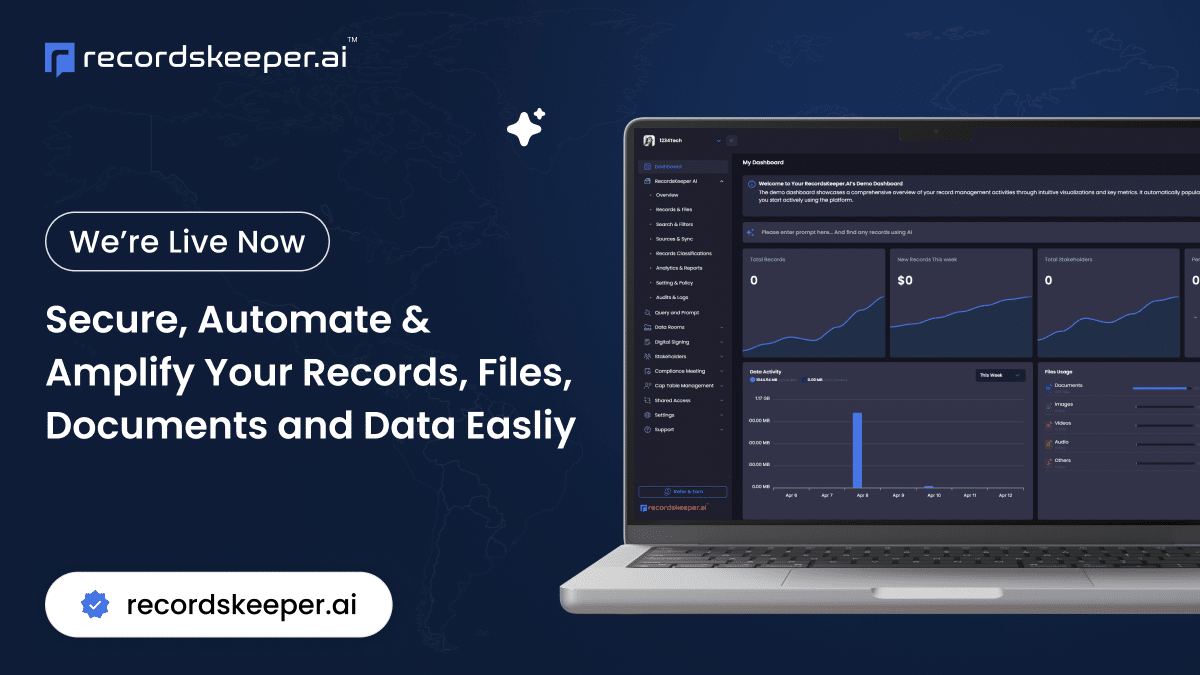As someone deeply invested in revolutionizing how organizations handle records, I’ve encountered numerous challenges, chief among them being data retention policy conflicts. In a world that’s increasingly interconnected yet governed by distinct jurisdictional rules, reconciling conflicting requirements can feel like navigating a labyrinth. Today, I’ll take you through how leveraging AI can transform this daunting task into a seamless process.
Understanding the Complexity of Data Retention Policies
Data retention policies define how long data can be stored before it must be deleted or archived. They are critical for ensuring compliance with various regulatory standards such as GDPR, HIPAA, or SOX. However, what complicates matters is the disparity in retention requirements across different regions and industries.
Imagine being a global organization with branches in diverse jurisdictions, each with its own data retention laws. The complexity and risk of managing these conflicting policies manually are immense. Non-compliance could not only lead to legal penalties but also damage trust among your stakeholders. Therefore, automating the management of these policies is not just a smart move—it’s a necessary one.
Employing AI for Harmonizing Retention Policies
Here’s where AI steps into the picture. At RecordsKeeper.AI, the use of artificial intelligence makes reconciliation of conflicting data retention policies dramatically more efficient, accurate, and scalable.
1. Intelligent Policy Analysis
AI can be leveraged to assess and break down intricate data retention policies into understandable elements. Algorithms can analyze vast amounts of legal texts and convert them into actionable insights, a task hardly feasible at the same scale with human effort.
2. Automated Conflict Detection
By comparing these processed elements, AI can instantly detect conflicts within policies. Rather than waiting for a compliance auditor to uncover potential issues, AI identifies these areas proactively.
3. Dynamic Policy Updates
The rapidly evolving nature of legal landscapes requires an adaptive approach. AI-based systems can automatically update retention policies across jurisdictions, ensuring that your organization never falls out of compliance.
This approach not only saves time but also reduces the likelihood of costly errors. More importantly, it empowers compliance managers to focus on higher-level strategic tasks rather than being bogged down by administrative burdens.
Facilitating Seamless Integration with Existing Systems
Transitioning to a digital, AI-powered framework can be daunting. However, with a platform like RecordsKeeper.AI, the transition is smooth and enhances your existing systems.
Interoperability and Customization
Our platform integrates effortlessly with current document management systems, while also providing room for customization. Businesses can modify their use of AI tools according to their specific compliance requirements, without overhauling their entire IT infrastructure.
Furthermore, leveraging blockchain for the immutability of records provides an additional layer of security and trust, fortifying the integrity of your data management practices.
Overcoming Common Resistance to Change
Despite the clear benefits, many organizations are hesitant to adopt advanced technological solutions in compliance areas. Here are some reasons for resistance and how we can overcome them:
- Fear of Complexity: AI seems complex, but platforms like ours are designed to be user-friendly, with seamless interfaces and comprehensive support.
- Concerns about Security: While digital systems often raise concerns about intrusions, AI-based systems are incredibly secure, with encryption and tamper-resistant mechanisms.
- Apprehension of Initial Costs: While implementing advanced systems involves upfront investment, the long-term savings in manual labor, compliance risk reduction, and streamlined operations make it financially feasible.
Conclusion: Embrace the Future of Compliance with AI
As compliance landscapes grow more intricate, the risks associated with manual policy management become unacceptable. By embracing AI to harmonize and automate retention policies, organizations not only safeguard themselves against potential legal repercussions but also attain a strategic advantage over competitors who lag in digital transformation.
Start reimagining your approach to data retention policy conflicts today, and let’s leverage technology for a more secure, efficient future. For more insights on navigating these waters, follow along our journey at RecordsKeeper.AI.








